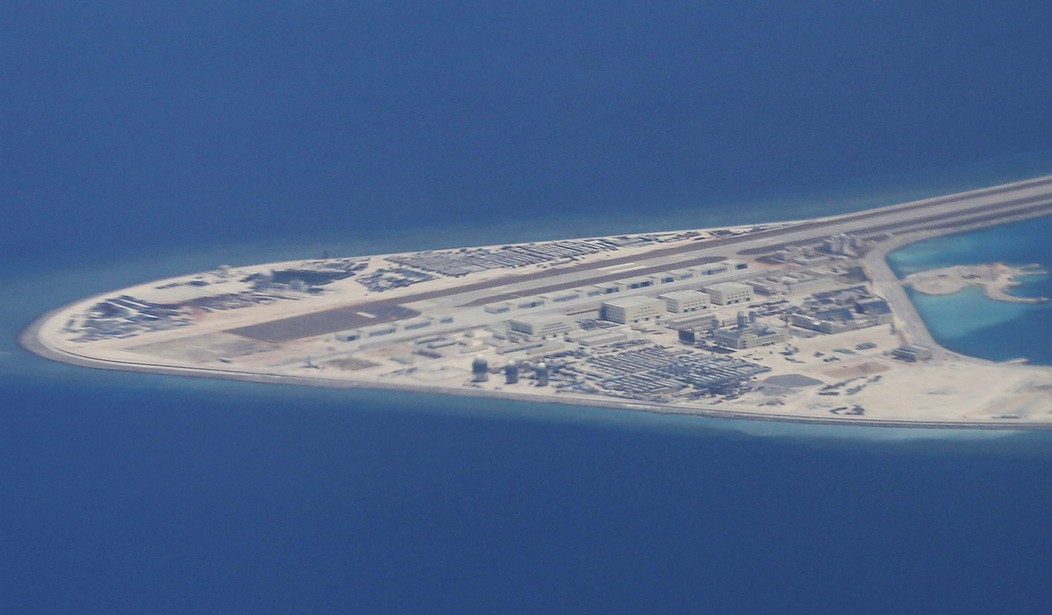Historical events have deep roots. The ultimate causes of WW2 are now thought by historians to lie in the failure of the post-Great War peace, the collapse of the League of Nations. In retrospect, the Big One was anticipated by precursor wars, notably the Japanese invasion of Manchuria and China, Mussolini’s attack on Ethiopia, and the Spanish civil war. Territorial and ethnic disputes played their part: the Rhineland, Danzig corridor, and Anschluss, to name the most famous, all preceded what we now remember as the Second World War.
The common perception is that the world has now descended into a new “cold war.” In the words of the New Yorker: “Not since the Berlin Wall fell has the world been cleaved so deeply by the kind of conflict that John F. Kennedy called a ‘long, twilight struggle’ over the shape of its future. In broad terms, it is a schism between the realms of democracy and autocracy, pitting the U.S. and its allies against Russia and its dominant partner, China.” To the question, “How did we get here?”, the answer must be, “gradually.”
It is instructive to look back the last halcyon days of the old world, when its leaders were curiously blasé. Apart from the recent news involving the handling of classified documents, the biggest national security scandal that never happened was the destruction of American intelligence networks in China. The NYT reported, “From the final weeks of 2010 through the end of 2012, according to former American officials, the Chinese killed at least a dozen of the C.I.A.’s sources.”
WASHINGTON — The Chinese government systematically dismantled C.I.A. spying operations in the country starting in 2010, killing or imprisoning more than a dozen sources over two years and crippling intelligence gathering there for years afterward.
Current and former American officials described the intelligence breach as one of the worst in decades. It set off a scramble in Washington’s intelligence and law enforcement agencies to contain the fallout, but investigators were bitterly divided over the cause. Some were convinced that a mole within the C.I.A. had betrayed the United States. Others believed that the Chinese had hacked the covert system the C.I.A. used to communicate with its foreign sources. Years later, that debate remains unresolved.
That would have been big news today, but it wasn’t then. Not only does the cause of the Chinese intelligence coup remain unsolved, it has largely been publicly forgotten. “Around 2013, U.S. intelligence began noticing an alarming pattern: Undercover CIA personnel, flying into countries in Africa and Europe for sensitive work, were being rapidly and successfully identified by Chinese intelligence, according to three former U.S. officials. The surveillance by Chinese operatives began in some cases as soon as the CIA officers had cleared passport control.” U.S. officials believe Chinese intelligence operatives stole sensitive data — including personal information and U.S. government personnel records — and then used it to expose and surveil undercover CIA agents in Africa and Europe.
The agent loss preceded the actual data breach that has been openly reported. The 2015 Office of Personnel Management data breach involved Standard Form 86 (SF-86) U.S. government security clearance records. “The stolen data included 5.6 million sets of fingerprints. Biometrics expert Ramesh Kesanupalli said that because of this, secret agents were no longer safe, as they could be identified by their fingerprints, even if their names had been changed. … The overwhelming consensus is that the cyberattack was carried out by state-sponsored attackers for the Chinese government, specifically the Jiangsu State Security Department.” That too would have made headlines today, but it subsided quickly then.
Another event that was not given the importance it deserved was the 2014 Russian invasion of Crimea. In retrospect, the war in Ukraine began back then. “On 27 February, unmarked Russian forces with nationalist paramilitaries took over the Autonomous Republic of Crimea and Sevastopol … Pro-Russian forces also occupied several localities in Kherson Oblast on the Arabat Spit, which is geographically a part of Crimea.” According to Wikipedia the Russo-Ukrainian war actually began in 2014. It only escalated in 2022 into its present lethal form.
The Russo-Ukrainian War, previously referred to as the Ukrainian crisis in its early stages, is an ongoing international conflict between Russia, alongside Russian-backed separatists, and Ukraine, which began in February 2014. Following Ukraine’s Revolution of Dignity, Russia annexed Crimea from Ukraine and supported pro-Russian separatists fighting the Ukrainian military in the Donbas war. The first eight years of conflict also included naval incidents, cyberwarfare, and heightened political tensions. In February 2022, Russia launched a full-scale invasion of Ukraine.
If Taiwan is ever invaded, we might recall that the seeds were sown in the 2013-2015 period through the construction of fortified islands by Beijing in the South China Sea. “China has 20 outposts in the Paracel Islands and 7 in the Spratlys. It also controls Scarborough Shoal, which it seized in 2012, via a constant coast guard presence, though it has not built any facilities on the feature. Since 2013, China has engaged in unprecedented dredging and artificial island-building in the Spratlys, creating 3,200 acres of new land, along with a substantial expansion of its presence in the Paracels.” No big deal then, but we may remember it someday.
Also for our VIPs: Biden Risking Another ‘Forever War’ by Moving to Invite Ukraine to Join NATO
The second cold war didn’t happen suddenly. When Trump and Biden came along, the geopolitical blaze was already going, downplayed by a media eager to show that Barack Obama was governing splendidly and all was well with the old Global World’s march to the End of History. But the trail of disasters did not pass unnoticed by the public, who turned on Hillary Clinton. “There isn’t a dime’s worth of difference between Barack Obama and Hillary Clinton. She will continue foursquare … and put forward Barack Obama’s policy in a third and fourth term,” is how Rep. Michele Bachmann (R-Minn.), a 2012 also-ran positioning herself as the Anti-Hillary, put it. Only now perhaps can we see the wisdom — or lack of it — in that messaging.










